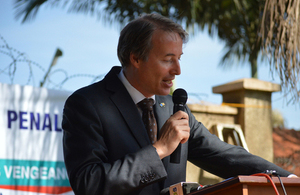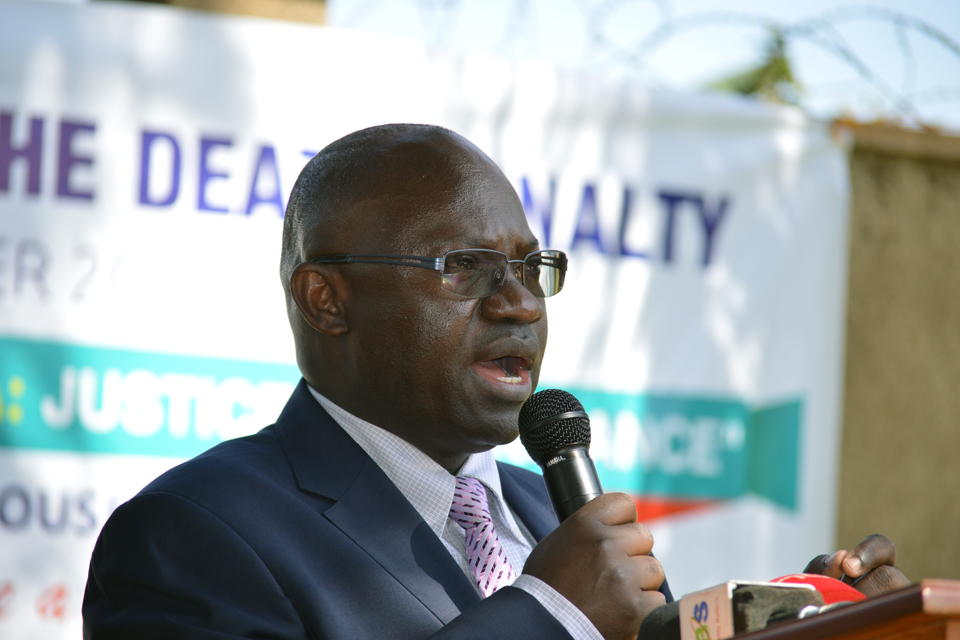British High Commission Kampala marks World Day Against the Death Penalty
UK officials participated in a high-profile event calling for abolition of the death penalty in Uganda.

Head of the EU Delegation in Uganda Kristian Schmidt speaks at the event to mark the World Day Against the Death Penalty
On Monday (10 October 2016) the Consul, Samuel Paice, participated in a commemoration of the 14th annual World Day Against the Death Penalty, organised by the Ugandan civil society organisation, Foundation for Human Rights Initiative (FHRI). The theme of the half-day commemoration event was, “The Death Penalty in Uganda: Justice vs. Vengeance”. It was also attended by senior representatives of the Uganda, parliament, police and prisons services, as well as the Head of the EU Delegation in Uganda and the Charge d’Affaires of the French Embassy in Kampala.

Her Majesty's Consul Samuel Paice (centre) with the Charge d’Affaires of the French Embassy in Kampala Lionel Vignacg (right) and the Executive Director of the African Centre for Treatment and Rehabilitation of Torture Victims Herbert Samuel Nsubuga during the event to mark the World Day Against the Death Penalty
The World Day Against the Death Penalty was first held in 2003. It was established by the World Coalition Against the Death Penalty, a group of international NGOs (of which FHRI is a member) established to strengthen the international abolition movement.

Executive Director of the Foundation for Human Rights Initiative Dr Livingstone Sewanyana speaks at the event.
The UK Government stands firm in its opposition to the use of the death penalty, over 50 years after the last execution took place in the UK. Working towards global abolition is an important part of our broader work on protecting and promoting human rights throughout the world.
We believe that the death penalty undermines human dignity and violates the right to life, the most basic of all human rights. Furthermore, there is no evidence that the death penalty acts as a deterrent to crime. Numerous academic studies have failed to establish that execution is a stronger deterrent than the prospect of a long prison sentence. And all countries, whether they maintain the death penalty or not, must acknowledge that any miscarriage of justice leading to the imposition of the death penalty is irreversible and irreparable.
We are not alone in these efforts. 138 countries, including 16 African Union members, have abolished the death penalty in law or practice. And the international trend towards abolition of the death penalty received strong support in December 2014 in the largest ever UN General Assembly vote in favour of establishing a worldwide moratorium. 117 out of 193 UN member states voted in favour of the resolution. The next vote will take place in November 2016 and the UK will be encouraging countries, including Uganda, to vote in favour of the resolution.
Over a number of years the British High Commission in Uganda has supported organisations working towards the abolition of the death penalty. Most recently we have supported consultations on the Law Revision (Penalties in Criminal Matters) Miscellaneous Amendment Bill which is currently before the Parliament of Uganda. The Bill seeks to reduce the number of offences that attract the death penalty in Uganda and removes the mandatory death penalty from the statue books, in line with progressive rulings by Uganda’s Supreme Court.